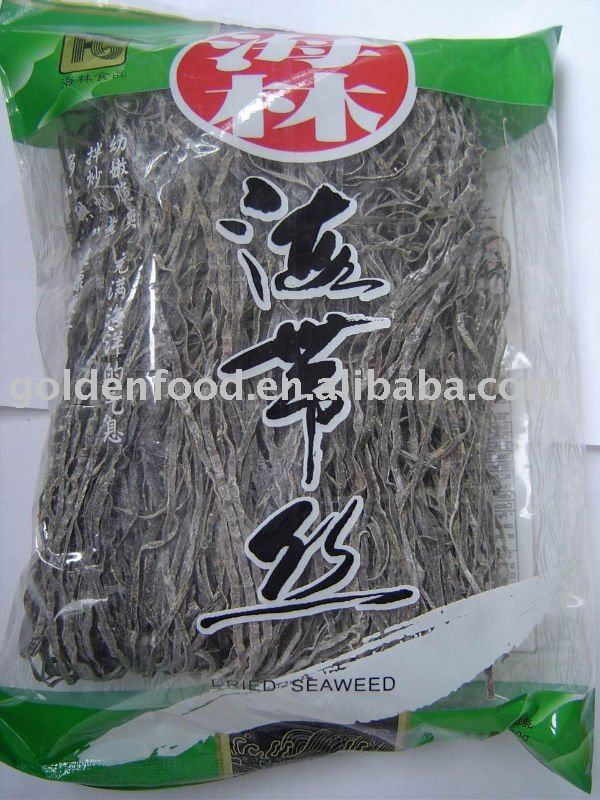What is kelp? What are the benefits and the side effects of eating kelp? Is it really a superfood seaweed?
Posted on: May 12, 2017 /
Hi there. I’m a big fan of eating seaweed based dishes and have recently found it in supermarkets, dried. I’ve read quite a bit of information from various sites, some praising it, some highlighting the dangers of eating too much of it. What’s your take on this based on your own experience?
Kelp is a type of brown seaweed, growing near coastal fronts at rather shallow depths in waters that are rich in nutrients, which it packs in its own structure. This is one of the reasons it has attracted so much attention.
It is packed with 21 aminoacids and over 70 types of mineral. Add a few B vitamins, top it with vitamin C and you get that so called superfood.However there are about 30 types of kelp known to date, so choosing the best one depends on your needs.
The way you decide to consume it, also weighs a lot. You can have it raw, cooked, powdered and in supplements. While the last 2 provide the largest amount of nutrients, they require the most attention. If you decide to go for the supplements form, then one approach is to take it for 2 weeks and then make a 2 week break between using it again. The reason is that iodine is highly concentrated in kelp and when you take it as a powder or a as a supplement, you might easily tip the balance on the negative side effects part.
However, when talking about the benefits I guess the list is quite long. Some of these are proven, some are claims and some are theories, but to highlight the most important ones, I would say:
-
- regulates the thyroid glans function;
- fights against inflamations, so a good way to fend of cancer. Some claim that it has cancer curing abilities, while most agree that it just limits the growht of cancerous cells. Anyways the consensus is that it is a good ally in fighting cancer;
- natural antibiotic, fights infections and is a blood thinner;
- can treat burns, aging skin, insect bites and various skin related diseases;
- rich in antioxidants including carotenoids, flavonoids, and alkaloids which help against free radicals;
- contains alginate which may halt the absorption of fat in the gut by 75%;
- there are a lot of stories about helping with hair loss;
As a side note it is also used in the soap and glass industry, as a thickener for various products such as ice cream, yogurt, etc. and as a renewable energy source. On this last part it seems that i generates a lot of metane gas and other compounds that can be transformed in ethanol so there are talks about building offshore farms to harvest it for this purpose.
There is a lot of debate on this one. Since you can read about the benefits of it everywhere, I guess it comes down to a few things to keep an eye on as potential risks:
- too much iodine. This is stressed everywhere. This algae is just packed with iodine. If you eat it raw, then there is not much risk of exposure to this, since you can eat just this much of it. If you take it in powdered form, then there is a threat as it is highly concentrated. As the regular salt we eat, has also been added iodine, then the risk of getting too much is bad. The side effect is that you may have problems with the thyroid gland;
- the source from which the kelp is harvested is very important. Since this algae thrives in nutrient rich saltwater from which it gathers a lot of minerals, it is important for these waters to be clean, unpolluted, as kelp can also aborb heavy metals such as mercury, lead and arsenic. If your diet is rich in contaminated kelp, then it’s a problem. Symptoms go from hair loss to a constant tiredness feeling. You can find some kelp packages that mention if they were tested for arsenic traces;
- like all “herbs” it can cause allergic reactions, most frequent is a troubled stomach, heart burn and dehydration;
- because of the iodine content, there is a suspicion that it might amplify the acnee so if you suffer from it, it’s better to stay away;
- anticoagulant and hypertensive effects;
All in all I guess it all comes down to responsible consumption. If you don’t overdo it, then it should be no problem. Also keep an eye on the package to see from where it has been harvested. Most praised sources are North American waters, Iceland and Northern European countries where the water is more pure.
For the visual ones, this is Kelp before it reaches supermarkets:

and this is kelp before you eat it

I heard that seaweed contain lots of proteins, but they taste quite unusual. Even though this product is very good for health, I wouldn’t try it too many times
Does anyone on QAWIKI like how it tastes? How do you prepare it? I tried to make a salad out of it but it was really crap compared to those Chinese salads from fast-food. Maybe I should prepare it faster, too
Or maybe it just lacked monoglutamate, the Chinese salt.


